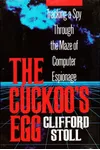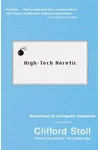Picture an astronomer who stumbled into a digital detective story that changed cybersecurity forever—meet Clifford Stoll! Born in 1950, this quirky American thinker turned a 75-cent accounting glitch into a thrilling chase across the early internet, captivating readers with his bestseller, The Cuckoo’s Egg. From skeptical musings in Silicon Snake Oil to crafting glass Klein bottles, Stoll’s life is a delightful blend of science, storytelling, and skepticism.
The Making of Clifford Stoll
Clifford Paul Stoll kicked off life in Buffalo, New York, with a knack for science. He earned a B.S. in Astronomy from the University at Buffalo in 1973, tinkering in the electronic music lab under Robert Moog’s mentorship. After chasing a Ph.D. in astrophysics at Berkeley, Stoll’s funding dried up, landing him an unexpected gig as a systems manager at Lawrence Berkeley National Laboratory. Little did he know, this detour would make him a cybersecurity legend.
Clifford Stoll’s Unforgettable Stories
Stoll’s breakout hit, The Cuckoo’s Egg (1989), reads like a spy novel but chronicles a real-life hacker hunt. In 1986, tasked with solving a tiny accounting error, Stoll uncovered a KGB-sponsored hacker, Markus Hess, infiltrating U.S. networks. His meticulous tracking—using teleprinters and a honeypot—unraveled a global espionage ring, making this book a cybersecurity classic. Its vivid narrative blends technical grit with Stoll’s quirky humor, like tossing in a chocolate chip cookie recipe mid-hack.
In Silicon Snake Oil (1995), Stoll flipped from hero to skeptic, questioning the internet’s overhyped promise. He argued that computers couldn’t enrich daily life—cooking, hiking, or poetry don’t need code! While some predictions missed the mark, his cautionary tone about digital overload resonates today. High-Tech Heretic (2000) doubled down, critiquing tech’s role in education and society with sharp wit. Stoll’s style—conversational, curious, and contrarian—makes complex ideas accessible and fun.
Why Clifford Stoll Matters
Stoll’s work shaped cybersecurity’s early days, inspiring a generation of digital defenders. The Cuckoo’s Egg wasn’t just a story; it was a wake-up call about network vulnerabilities, pioneering digital forensics. His skepticism in Silicon Snake Oil challenged tech utopianism, urging balance in our digital lives. Today, Stoll’s legacy lives in his eclectic pursuits—selling Klein bottles, lecturing, and contributing to Numberphile—proving curiosity drives impact.
About Clifford Stoll
- Born: June 4, 1950, in Buffalo, New York
- Key Works: The Cuckoo’s Egg, Silicon Snake Oil, High-Tech Heretic
- Fun Fact: Sells handmade Klein bottles, topological oddities with one side
- Notable Role: MSNBC commentator and Numberphile contributor
Ready to dive into a tech tale that’s equal parts thrilling and thought-provoking? Grab The Cuckoo’s Egg and explore Clifford Stoll’s wild ride through the digital frontier!

